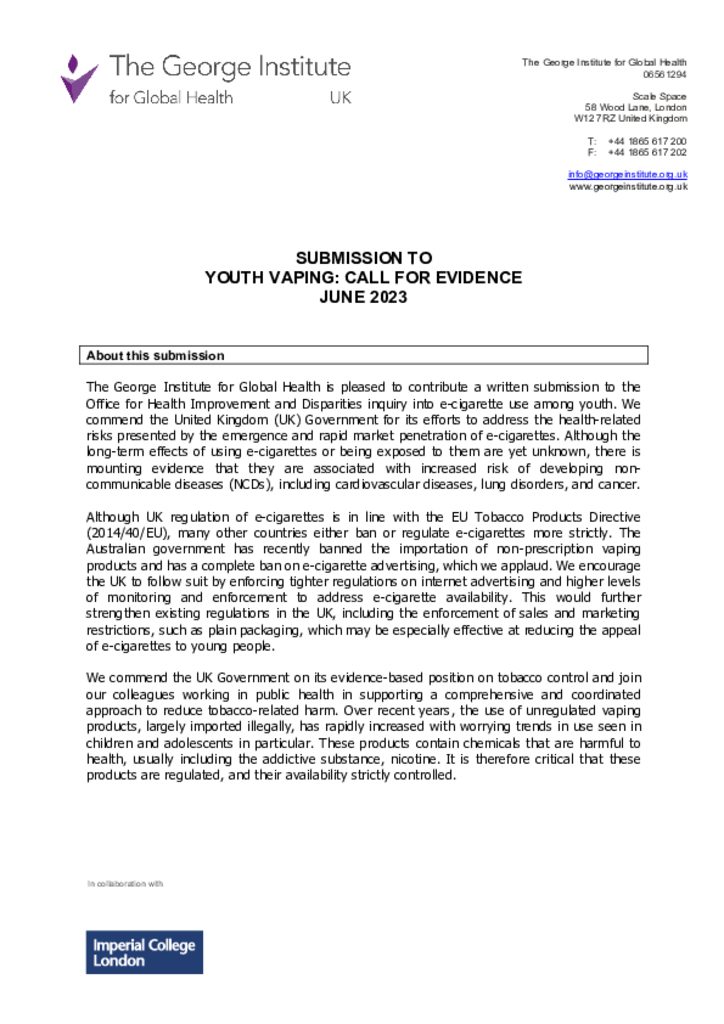
Submission to Department for Health and Social Care (DHSC) Call for Evidence on Youth Vaping – June 2023
The George Institute for Global Health is pleased to contribute a written submission to the Office for Health Improvement and Disparities (OHID) inquiry into e-cigarette use among youth. OHID is part of the UK Government Department for Health and Social Care (DHSC).
We commend the UK Government for its efforts to address the health-related risks presented by the emergence and rapid market penetration of e-cigarettes. Although the long-term effects of using e-cigarettes or being exposed to them are yet unknown, there is mounting evidence that they are associated with increased risk of developing non-communicable diseases (NCDs), including cardiovascular diseases, lung disorders, and cancer. Over recent years, the use of unregulated vaping products (which are largely imported illegally) has rapidly increased with worrying trends in use seen among children and adolescents. These products contain chemicals that are harmful to health, usually including the addictive substance, nicotine. It is therefore critical that these products are regulated, and their availability strictly controlled.
Based on our evidence, we have identified several recommendations that we encourage the OHID to consider building regulatory compliance, reduce the appeal of vapes to children and address the marketing and promotion of vape productions:
- The influence of significant others, particularly friends and family, on use of e-cigarettes by young people is an important driver. E-cigarettes are being readily accessed from numerous sources, highlighting the importance of intensifying monitoring and enforcement of strict regulations to reduce e-cigarette supply. School settings offer an opportunity to reach young people in large numbers and potentially prevent the detrimental effects vaping has on mental health, peer relationships, and academic achievement.
- It is critical for young people to receive regular and reliable information about the harms associated with vaping. Different forms of messaging about harms need to be tested to ensure effectiveness and then disseminated widely through credible sources and well-designed public health campaigns to prevent misinformation from luring young people into vaping.
- Since it appears to be the main means by which e-cigarette can reach young people, cigarette advertising at vape shops and other retailers should be limited, and advertising on social media should be banned. To avoid health-related harm, advertising regulations must be carefully constructed and strictly enforced.
Read the full submission to learn more. You can also access the call for evidence outcome, and analysis of all 441 submissions received.





